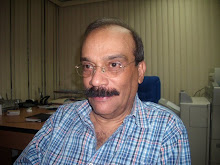A
practical example of the influence of the media on the monetary situation of
the countries is found in what has happened in Venezuela between 2014 and 2015,
time during which a digital media, a website written from outside Venezuela has
determined the value of the national currency of the country against the dollar
in the unofficial currency market.
The
most striking event occurred the week beginning May 25, 2015, when the parity
set by the website doubled the maximum official rate established by the
Venezuelan monetary authorities, which placed the value at about 200 bolivars
per dollar. But that week, the aforementioned web page, placed the value of the
bolivar in the unofficial market at about 220 per dollar, more than doubled. The
page authors have explained that they make their calculations based on the
average resulting from the addition of two values: a) the implicit value of
money (M1 / International Reserves) and the price of the bolivar against the
dollar in the city of Cucuta on the border between Venezuela and Colombia. But
the resulting average of the two figures never justifies the amount allocated
by the website to the value of the Venezuelan currency against the dollar. As a
simple example we can say that the week that began on May 18, 2015, the implied
value of the bolivar against the dollar was 128 bolivars. In addition, the values
of transactions bolivar / dollar on the Colombian-Venezuelan border are not
registered in official records to establish with certainty the reality
exchange. So, therefore, that the figures published by the website indicated
constitute a double speculation: a) to establish a figure speculation with no
basis in economic and b) speculation in the stockjobber sense.
But
how can this happen?
Well,
all social phenomena can be explained. In this case, it occurs because in
Venezuela there is an exchange control since 2006 that difficult transaction in
the economy and creates a situation in which demand outstrip supply of foreign
exchange at the official price; there are also three exchange rates, which
exacerbates the problem.
Why
economic actors assign credibility to mass media?
Since
the media appeared on the social scene, most people assigned them great
credibility. The word spread by the media, the press first and then radio and
television has always enjoyed great prestige and very few people question its
veracity. In the cyber world of the XXI century, the tradition of media
credibility has been extended to the new forms of communication: Internet and
digital media; therefore, the information disclosed by the website portals as
the mentioned in this article have captured the attention and credibility of an
important part of the public.
But
in the case of Venezuela, the damage caused to the economy by the manipulated
information of the webstite without economic objectivity is such that the Central
Bank of Venezuela and the association of private banks in the country during
the week of May 25, 2015 had to express its alert to economic actors to avoid
believing in baseless figures released by the mentioned digital media,
confirming that the only official figures that should be respected by economic
actors for their own benefit are the figures disclosed by the monetary
authority .
In
the link below the official declaration of the Banking Association of Venezuela
can be seen:
What
happened in Venezuela regarding information on the monetary reality is an extraordinary
communication phenomenon which confirms the great power of the media and its
influence in politics, economics and social change, as amply explains the book
entitled Sobrepoder (Spanish) Overpower:
Sobrepoder,
Amazon, print edition, paperback





No hay comentarios:
Publicar un comentario